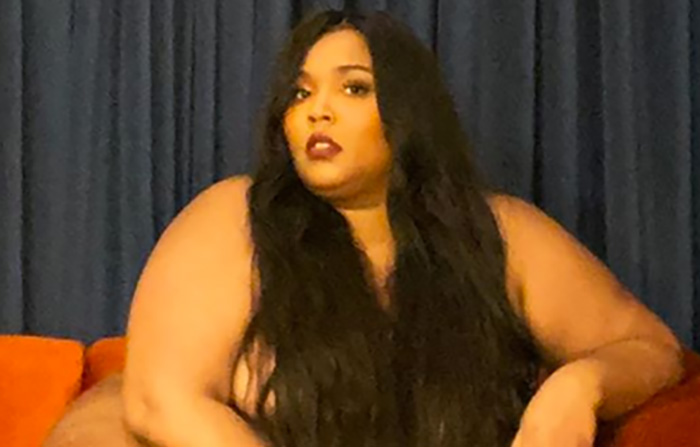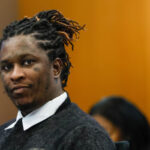Jurors acquitted Baton Rouge rapper Torence “Lil Boosie” Hatch Friday in the 2009 slaying of a man gunned down in his home.
Jurors deliberated for an hour before returning the verdict. Before it was read, District Judge Mike Erwin warned those in the courtroom not to make any emotional outbursts. Still, many quietly sobbed after the verdict was announced.
Hatch, who stood quietly, bowed his head and pumped his fist when he heard the decision from the 12-person jury.
“You’ve been found not guilty. You stuck your fist up in the air and I can’t exactly say that I blame you,” the judge said.
Prosecutors contend Hatch hired Michael “Marlo Mike” Louding to kill 35-year-old Terry Boyd, who was shot to death through a window while he was inside his home. Boyd’s sister, Rochelle Wagner, is the mother of Hatch’s 5-year-old daughter. She left the court crying after hearing the verdict and did not speak with reporters.
Defense attorney Jason Williams said the rapper comes from
“a fine family, who had prayed throughout the ordeal.”
When asked Hatch’s reaction, Williams said,
“He just kept saying ‘Thank God, Thank God,’ over and over.”
Hatch, 29, is currently serving an eight-year prison term on separate drug charges. Had he been convicted in Boyd’s slaying, he would have faced life in prison.
“I think he has a long life and an amazing career ahead of him now,” said Martin Regan, another attorney.
Following the verdict, more than 100 people celebrated in a small park in front of the courthouse, laughing, slapping hands and dancing around. When Hatch’s team of defense attorneys appeared, the crowd loudly chanted “Boosie, Boosie, Boosie.” When the attorneys began to descend the court house’s steps, some in the crowd shrieked and mobbed them, congratulating them on doing a good job.
“The quick verdict showed that they should never have charged him,” Williams said. “We didn’t call a single witness because every single witness they called, even the police officers, did not say anything connecting Torence to this.”
East Baton Rouge Parish District Attorney Hillar Moore did not speak with reporters following the trial’s end.
In his closing statement Friday, Williams argued that violent imagery and lyrics in music are not evidence of a crime.
Williams said that prosecutors failed to prove their case and that the prosecution was influenced by the nature of Hatch’s music, some of which was played for the jury. But, Williams said, the images are part of a branding effort in the business of selling records.
“She has put the entertainment industry on trial,” Williams said of lead prosecutor Dana Cummings. “She has put an entire culture on trial.”
During the trial, jurors heard tracks recorded by Hatch that make reference to someone named Marlo and that prosecutors say include lyrics about death that indicated Hatch’s intent to kill Boyd.
The courtroom was packed with media, friends and family of the defendant and victim. Dozens of others who couldn’t get inside the courtroom lingered in the lobby outside. Security was tight, with almost a dozen deputies standing outside the doors and another half-dozen inside. Some were wearing bulletproof vests, although the crowd was orderly.
Dozens of sheriff’s deputies and Baton Rouge police officers also stood around the front of the courthouse or patrolled the area either on horseback or in cars, possibly anticipating a disturbance after the verdict that never occurred.
Louding, 19, faces murder charges in six deaths, including Boyd’s, over 14 months.

![Da Brat Marries Judy Dupart on 2.22.22 [PHOTOS]](https://hiphopucit.com/wp-content/uploads/2022/02/1645669184565-440x264.jpeg)
![Drake Reveals Photos of His Son Adonis [Photos]](https://hiphopucit.com/wp-content/uploads/2020/03/Drake-and-on-Adonis-HHUCIT.jpg)

![Megan Thee Stallion – “BOA” [NEW VIDEO]](https://hiphopucit.com/wp-content/uploads/2024/05/Megan_Thee_Stallion___BOA__Official_Video__1_12_screenshot-440x264.jpg)
![Doechii Feat. JT – “Alter Ego” [NEW VIDEO]](https://hiphopucit.com/wp-content/uploads/2024/05/Screenshot-of-Doechii-and-JTs-Al-440x264.png)
![Young Thug Feat. Drake Drop – “Oh U Went” [NEW VIDEO]](https://hiphopucit.com/wp-content/uploads/2023/07/Young-Thug-and-Drake-1014x570-1-440x264.png)






